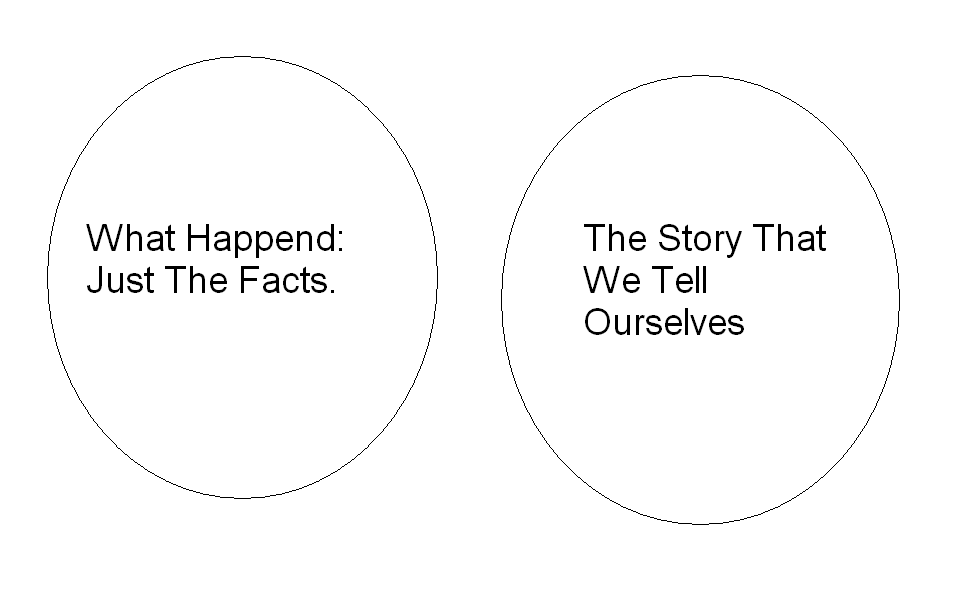 Anyone who’s heard of Landmark Education knows they’re an organization clouded in controversy. There have been rumors of everything from it being the best personal development program ever, to being a cult. I’d read all the reviews of the program and even watched a documentary about the original founder of Landmark (EST) Werner Erhard. After it was all said and done, I was too skeptical about Landmark to do the program…then Time Magazine and BusinessWeek (within a few weeks of one another) had reviews about Landmark and what a great program it was—both articles praised it as a great program for business people. At that point, I decided to give it a go. I figured, best case scenario, I would go to Landmark and it would be the best personal development program ever, worst case scenario, if it was a cult, I could at least infiltrate it and write a good story about what a cult it is.
Anyone who’s heard of Landmark Education knows they’re an organization clouded in controversy. There have been rumors of everything from it being the best personal development program ever, to being a cult. I’d read all the reviews of the program and even watched a documentary about the original founder of Landmark (EST) Werner Erhard. After it was all said and done, I was too skeptical about Landmark to do the program…then Time Magazine and BusinessWeek (within a few weeks of one another) had reviews about Landmark and what a great program it was—both articles praised it as a great program for business people. At that point, I decided to give it a go. I figured, best case scenario, I would go to Landmark and it would be the best personal development program ever, worst case scenario, if it was a cult, I could at least infiltrate it and write a good story about what a cult it is.
I was initially planning on doing a different blog post with a review of each day; however, after the program, a thorough review of each day is unwarranted.
Day 1:
First off: I am utterly convinced that anyone who thinks that Landmark Education is a cult, is an idiot; it is a personal development program, and from day one to day three, it’s clear that that’s all it is. It’s just a program to help people deal with their issues.
Day one can be summarized as: What Happened VS Perception: The Stories that we Tell ourselves. (Pictures below).
Certain events happen in a person’s life and they attach a story to these events. The facts of the situation are what happened, and the story about why what happened, happened, is our perception. The main point to note is that perception isn’t fact, its perception.
Example:
You’re on your way to work and your car breaks down. You arrive to work five minutes late and your boss starts yelling at you, “You’re late. You’re always late. You’re a horrible employee.”
This upsets you and you start telling yourself what a jerk you boss is, and you tell yourself that he must hate you.
The story that we tell ourselves is “he’s a jerk,” “he hates me,” but those aren’t facts, they’re perceptions, they’re stories that we tell ourselves. We only say “he’s a jerk,” because he did or said something that made us associate him as a jerk. Is it a fact that he’s a jerk? NO, it’s not a fact. But the story that we tell ourselves is that he’s a jerk and we accept it as a fact. We then go around complain to anyone who will listen and say, “my boss is a jerk.” And of course telling yourself that your boss is a jerk and treating him like he’s one and complain all day and telling yourself all day that he’s a jerk, is going to put you in a pretty crummy mood.
So when something happens, just ask yourself why you’re telling yourself the story that you’re telling yourself—and ask yourself if it’s a fact, or a story.
Day 2:
Day two started off with people talking about the breakthroughs they’d had since day one. (A LOT of people actually had a LOT of breakthroughs in that twenty-four hour period.) The first few hours of day two was a combinations of people talking about their breakthroughs and Landmark pushing its other products.
After Landmark selling its other programs and after the breakthroughs , they started talking about responsibility: Personal Responsibility. Basically it’s the aspect of a person taking responsibility for their lives and what happen in their lives.
Example:
If someone’s an alcoholic, what happens is they’ll often say to themselves, “It’s not my fault. I only drink because my dad drank…or my dad beat me. If he never beat me, I wouldn’t be an alcoholic.”
A lot of people had a lot of problems with day two. They didn’t like the idea of having to stop blaming other people, and start taking responsibility for themselves. No one’s father made they become an alcoholic.
It reminds me of the old story of twin brothers. These twin brothers had a very abuse and alcoholic father. Their dad used to beat them, neglect them, etc. Both of the boys grew up. One of them became a very successful businessman who used his riches to help other people in abusive relationships. The other grew up to become a drug addict and alcoholic. When the first twin (the successful one) was asked what motivated him to work so hard to succeed and then give back to charity, he responded, “Well, growing up with an alcoholic father who beat me, how could I not work hard to leave home and become a success, and then use my money to help others.” When the other brother was interviewed (the drug addict and alcoholic) and was asked why he became a drug addict and alcoholic, he responded, “Well, growing up with an alcoholic father who beat me, how could I not become a drug addict and alcoholic.”
Same situation, different stories they told themselves. One brother used his upbringing to drive him to succeed and the other brother used his upbringing as an excuse to blame his father for all his short coming and problems.
Day 3:
Day three started off with a LOT more selling of other Landmark programs. Day three was also the day that was supposed to bring day one and day two together. After all the promoting of Landmark’s other programs, the beginning of day three was, again, about people talking about the breakthrough’s that they’d had in the past forty-eight hours—there were a lot of breakthrough’s, and a lot of crying.
I can’t go into detail about all the breakthrough that people had (because we all agreed to keep things confidential) but people had breakthrough is every walk of life, from people going through divorces, people who were abused as children, people who lost their job, people who hadn’t spoken to a family member in twenty years. There was a little bit of everything and they all benefited.
Day three was about living a life where we’re aware of the stories that we tell ourselves, and it was about living a life where we all take personal responsibility for our actions and our emotions and feelings. Imagine a world where people didn’t fret about the “stories” that we tell ourselves and instead only dealt with the facts of a situation. Imagine a world where people take personal responsibility for their actions. Day three was all about perpetuating this in our lives.
The Positive: Landmark gave people an opportunity to look at their issues from a different point of view. It gave people an opportunity to see whether the stories that they’re telling themselves are true or are just “stories.” It gave people an opportunity to take responsibility of their lives—for the good stuff, and the bad. A fast majority of the people who went to Landmark seemed to get something out of the training, although some people’s nuggets of gold were substantially larger then other people’s.
The negative: If you have a serious issue in your life that you need to get worked out, Landmark is the company for you. If you’ve got a drinking or drug problem, Landmark is for you. If you have an issue with your mother or father, or a brother or sister, Landmark is for you. If you’re going through a divorce, Landmark is for you. If someone important in your life passed away, Landmark is for you.
If you don’t have any serious issues: Landmark might not be for you, yet. Yeah, you’ll get something from the program, everyone does, but if you don’t have any serious issues or problems, Landmark might not be right for you—at this time in your life—and might come across as a waste of time and money. But if you do have a serious problem, Landmark Education is the place to go and it’ll change your life for the better.
—
For more information on the Landmark Forum, the following book is the best on the market. It details what Landmark forum is, from its founding, to what it’s become. It’s written by Luke Rhinehart, with a forward by Werner Erhard, and an introduction by Joe Vitale (bit redundant with an introduction, and a foreword, but still, it’s an interesting book).
